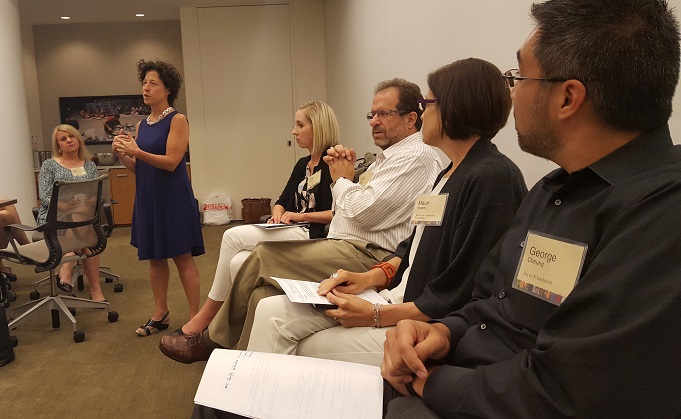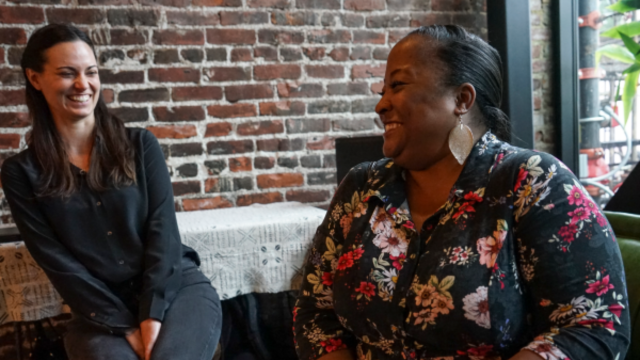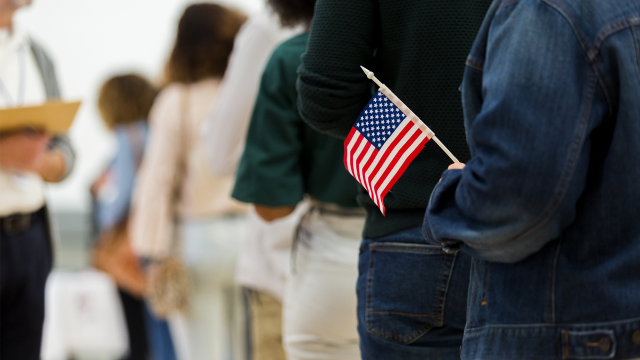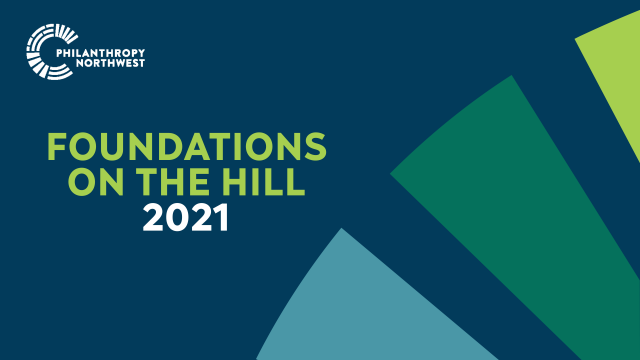Philanthropists agree: Seattle's civic health is strong. But what makes it that way, and how can we support this in other parts of our region and country?
At last week's Seattle meeting of Philanthropy for Active Civic Engagement (PACE), a national network of funders investing in civic engagement and democracy, more than 30 of us explored this theme together. Participants represented a range of organizations, including the Bill & Melinda Gates Foundation, The Greater Tacoma Community Foundation, Kettering Foundation, Microsoft, Nesholm Family Foundation, Pride Foundation, The Russell Family Foundation, Seattle Foundation, Sherwood Trust, Whatcom Community Foundation and Yakima Valley Community Foundation.
Assuming that civic dynamism does exist in Seattle — as evidenced by the successful movements for marriage equality, minimum wage, democracy vouchers and others that came out ahead of the national curve — what are the conditions that support this recipe? We reflected on the elements, particularly of culture and identity, that explain this civic dynamism.

Some speakers suggested that the “secret sauce” in the Puget Sound region boils down to our traditions and culture around civic engagement. While broader in scope than one family (and certainly not just wealthy families), the Gates family's history of nonprofit involvement prior to Microsoft is an example of this activism. Others described our relatively inclusive economy — that participation in economic growth in the region is broadly shared and equitable. Over robust dinner, we had robust discussions with members exploring Seattle's model, including insights from Mike Flood, Seattle Seahawks vice president of community relations; Robert Feldstein, City of Seattle director of the office of policy and innovation; Alice Ito, Seattle Foundation director of community programs; Racquel Russell, Zillow director of government relations and public affairs; and Zach Silk, Civic Ventures president.
On our second day together, PACE funders dug more deeply into some of the civic movements launched in Seattle and how they gave voice and action to broader issues in the national dialogue. Holly Powers of The Russell Family Foundation, David Bley of the Bill & Melinda Gates Foundation, Mauri Ingram of Whatcom Community Foundation, and George Cheung of the Joyce Foundation explored this question: Is it a healthy democracy that enabled these policy campaigns to be successful? And if so, what does that mean for philanthropy’s role in supporting democracy as a means to address social issues in any community?
Participants received the new edition of Daniel Kemmis' Philanthropy and the Renewal of Democracy, published by Philanthropy Northwest with support from Kettering Foundation. They appreciated the new illustration of how philanthropy strengthens democracy, visualized by Kemmis as a "continuum, stretching from a broad and varied range of mission-driven philanthropic activities that unintentionally strengthen democratic citizenship, through more deliberate contributions to community building, civic engagement, and public policy work, culminating in a growing number of direct investments in democratic reform."
Guiding these democracy-strengthening activities is central to Philanthropy Northwest's Democracy Northwest project and will be the subject of "What Can Philanthropy Contribute to the Future of Democracy," the opening plenary at our 2016 conference on September 13 in Missoula, Montana:
Philanthropy Northwest’s explorations of philanthropy and the renewal of democracy have taken on a new sense of urgency this year, given the turmoil, excitement and anxiety stirred by the election cycle and shifting demographics. By 2020, the majority of American children will be from communities of color; by 2043, this will be true of the U.S. population. The plenary will explore the following question: how can philanthropy leverage the energy of the current moment to encourage and support longer-term investments to protect and promote enduring democratic practices and civic engagement? Panelists include Antony Chiang of Empire Health Foundation; Daniel Kemmis of Democracy Northwest; Carol Lewis of The Giving Practice; and Garland Yates of Community Democracy Workshop.
Our PACE activities wrapped up with an exploration of how foundations of different structures and focus — national, regional, local — can work together on place-based issues. The campaigns that won in Seattle and the entire state weren't accomplished by going it alone. Participants spent time reflecting on both the necessity and real challenges of partnership and collaboration, especially across size, structure and geographic focus.
Remy Trupin is a Philanthropy Northwest Catalyst Fellow, focused on advocacy, and the author of the new foreword on the Fall 2016 edition of Philanthropy and the Renewal of Democracy. He and Daniel Kemmis will be discussing the monograph in greater detail at Philanthropy Northwest's 2016 conference, Under One Sky in Missoula, Montana.


